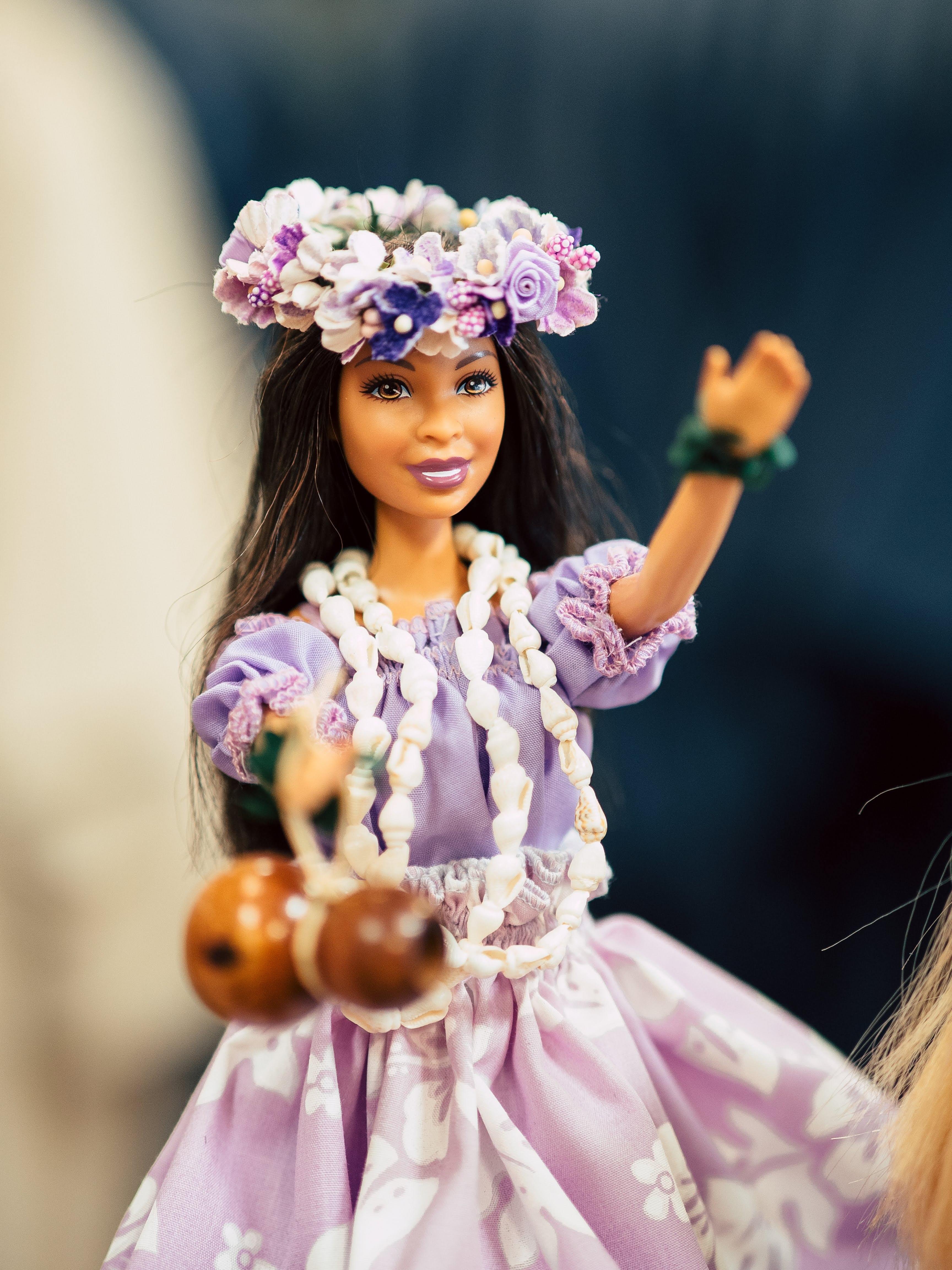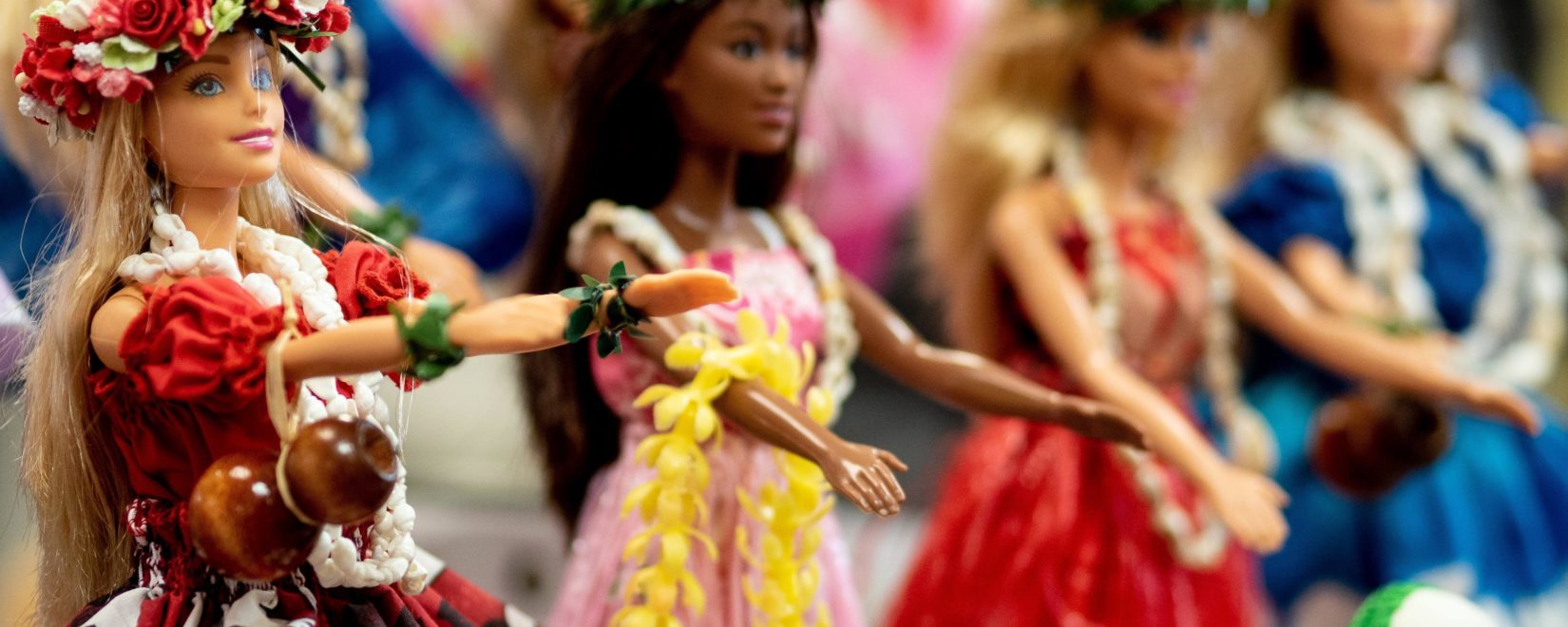Why I’m a Barbie Girl
Copywriter Mairi wrestles with her guilt about the iconic doll who helped inspire her career - and her beliefs.
She’s beautiful, 80% leg and has a more enviable wardrobe than Christian Siriano. She’s also a beacon of feminism and one of the most intelligent people I know. Now, am I talking about my best friend, or am I talking about Barbie?
Why is only the first statement true of both Lauren and Barbie? But I feel a twinge of feminist guilt for arguing the latter is too...After all, as a feminist, should I not be troubled by Barbie’s oversimplification of the female anatomy, the mere idea of ‘young girls should play with dolls’ and the indisputable influence she has had in the commodification of the female form? As an environmentalist, should not I be worried that buying my niece or nephew a Barbie might make me personally responsible for choking a seahorse with a plastic stiletto? As an activist of any form, does championing a doll who, for so long, has upheld and enforced the beauty standard of ‘thin, white and femme’ not make me a hypocrite?

Well, if I lay it all out like that - then yes. But I also can’t argue with the fact that Barbie has made me the feminist woman I am today.
The 8-year-old who played with Barbies was as immersed in their fabrics as she was in using them to tell a great yarn. My dolls had scandals, heartbreak, careers and convertibles. They had skirts and stories - which sort of exemplifies two of my defining characteristics as an adult. I am indebted to Barbie for my love of fashion. And without the plastic performances, I wonder if I’d ever have discovered my passion for storytelling?
Now is it enough that this paragon of perfection inspired one person? Or has she done too much harm for feminism that she’s beyond redemption? When it was announced that Margot Robbie would be starring in Barbie the film, the internet savaged the idea. And it was only when it was confirmed that feminist icon Greta Gerwig had signed on as a writer, that the tides started to shift. Margot Robbie - despite co-owning LuckyChap, a production company built on empowering female narratives - in the internet’s eye roll was Barbie brought to life. So that meant it couldn’t be feminist, right?
Ironically, for years, I’ve always thought of Barbie as a perfect role model. She made me think a woman could be whatever she wanted - because, in my house, she was a princess, a vet, a CEO, the host of GMTV. Sure, she was well dressed. But it was her brain that mattered to me. But recently, I’ve been wondering why I shy away from acknowledging that she’s ‘pretty’. And if I’m doing her, and feminism, a disservice by doing so.
It reminds me of a meme a male friend recently shared on Facebook. On the left, an image of Kendall Jenner in a bikini with Barbie-like proportions. On the right, an image of Alyssa Carson: a 19-year-old astronaut and the youngest person in history to pass all NASA aerospace tests. The caption: Our daughters need role models to look up to, not look at.
I see the sentiment, and I concur. There’s little mainstream coverage of the academic or scientific achievements of women. But it did make me query - is this not still equating a woman’s appearance with her value, albeit inversely? Saying that being ‘famous for being beautiful’ isn’t enough. Why is it we still continue this rhetoric that there is a ‘right’ and a ‘wrong’ way to be an admirable woman?
I feel guilty for wanting to wear lipstick and smash the patriarchy. I admire Barbie equally for her aesthetic qualities as much as for her intelligence. Am I a bad feminist for doing so?
I appreciate the answer isn’t black and white. The Barbies and Kendall Jenners of this world exemplify a very western idea of beauty, and they can choose to make their living however they please because of their privilege and skin colour. But I can’t help but feel like there is still part of our society that hate the concept of a woman building a legacy and profiting solely from her appearance, all on her own terms. And I might argue it’s just as feminist to applaud this as it is to applaud a woman for succeeding academically.
As Barbie enters a new era, 90% recycled, still beautiful and no longer solely reflecting the able-bodied and blonde. With a film with two feminist icons at the helm, collections dedicated to diverse role models and enough cash to fund a few million dreamhouses, I ask is it OK to call her my feminist hero? And if not, what does that mean for feminism?

